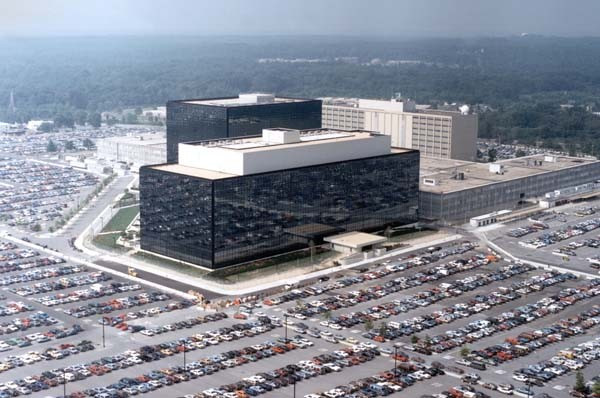Secret Court Ruling Reveals NSA Snooping Was Illegal
A secret court ruling has been released which shows some of the surveillance conducted by the National Security Agency (NSA) was illegal.

Hailed as a "victory" by the Electronic Frontier Foundation (EFF), the release of the secret 86-page court opinion from the Foreign Intelligence Surveillance Court (FISC) comes after 12 months of campaigning by the digital privacy campaign group.
Issued in October 2011, the secret court's opinion found that surveillance conducted by the NSA under the FISA Amendments Act was unconstitutional and violated "the spirit of" federal law.
The FISC is the court which oversees the implementation of the Foreign Intelligence Surveillance Act (FISA) and was seen by many as simply a way for the government to "rubber stamp" its surveillance operations. The release of this document however shows this is not the case.
The heavily redacted 86-page opinion reveals that tens of thousands of emails and other forms of electronic communications between Americans were gathered illegally, with the court estimating the NSA gathered 56,000 "wholly domestic" communications every year.
Misrepresentation
"For the first time, the government has now advised the court that the volume and nature of the information it has been collecting is fundamentally different from what the court had been led to believe," John D. Bates, chief justice of the surveillance court wrote in his opinion handed down on 3 October 2011.
Justice Bates goes on to outline more concerns about the extent of the NSA spying operation, saying: "The court is troubled that the government's revelations regarding NSA's acquisition of internet transactions mark the third instance in less than three years in which the government has disclosed a substantial misrepresentation regarding the scope of a major collection program."
This marks the first time a FISA court opinion has been issued by the US government in response to a request under the Freedom of Information Act, which in this case was brought by the EFF last year.
Serious debate
Responding to its release, Mark Rumold, EFF's lawyer told the Washington Post: "It's unfortunate it took a year of litigation and the most significant leak in American history to finally get them to release this opinion, but I'm happy that the administration is beginning to take this debate seriously."
Following the release of the court opinion, James Clapper, director of National Intelligence in the US, announced the establishment of a review group which will investigate whether the US "employs its technical collection capabilities in a manner that optimally protects" its national security and "while appropriately accounting for other policy considerations, such as the risk of unauthorised disclosure and our need to maintain the public trust."
Clapper said the group would report to President Obama within 60 days and issue a final report no later than 15 December 2013.
Shocking
This latest revelation comes after two months of shocking disclosures about the scope and extent of surveillance being carried out by the NSA as well as other spying agencies around the world, including the Government Communications Headquarters (GCHQ) in the UK.
These revelations came about as a result of former NSA employee Edward Snowden leaking highly sensitive documents about various NSA programmes to journalists from the Guardian and the Washington Post.
Snowden is currently in hiding in Russia where he was granted temporary asylum on the understanding that he leaks no further information about the US government's intelligence operations.
Speaking just two weeks ago about the Snowden revelations, President Obama said: "What you are not reading about is the government actually abusing these programmes and listening in on people's phone calls, inappropriately reading people's emails. What you are hearing about is the prospect that these could be abused."
© Copyright IBTimes 2025. All rights reserved.





















